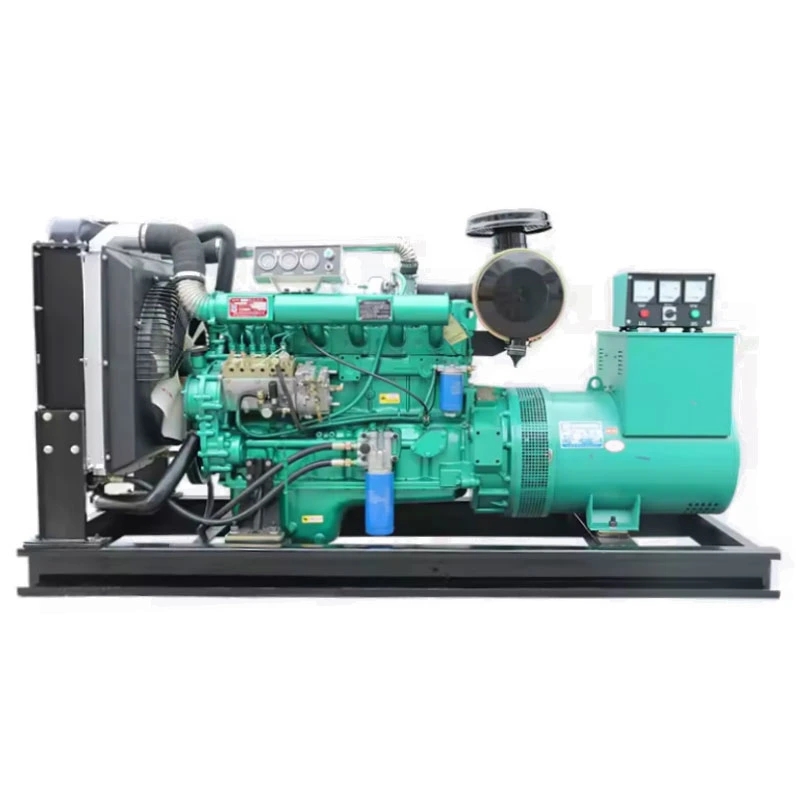Introduction
Diesel generators are essential power sources in various settings, providing reliable electricity when grid power is unavailable or unreliable. They are commonly used in industries, construction sites, remote locations, and emergency situations where a continuous power supply is crucial. However, operating diesel generators in dusty conditions poses unique challenges that can affect their performance and longevity. This article explores the importance of diesel generators in dusty environments and provides insights on how to ensure their efficiency and reliability in such conditions.
Importance of Diesel Generators in Dusty Conditions
Dusty environments are prevalent in many industries, construction sites, mining operations, and remote locations where diesel generators are commonly used. Dust particles can infiltrate the generator components, clog air filters, and affect engine performance. In such conditions, ensuring the proper functioning of diesel generators becomes paramount to maintain uninterrupted power supply.
Diesel generators are preferred in dusty environments due to their robustness, reliability, and fuel efficiency. They can withstand harsh conditions, provide high power output, and require minimal maintenance compared to other power sources. However, to maximize the performance of diesel generators in dusty conditions, certain precautions and maintenance practices need to be followed.
Challenges of Operating Diesel Generators in Dusty Conditions
Operating diesel generators in dusty conditions presents several challenges that can impact their efficiency and longevity. Some of the key challenges include:
1. Air Filtration: Dust particles can clog the air filters of diesel generators, reducing the flow of clean air to the engine. This can lead to decreased engine performance, increased fuel consumption, and potential damage to engine components.
2. Cooling https://www.lkpowerplant.com/60kw-150kw/ : Dust accumulation on the cooling system of diesel generators can hinder heat dissipation, leading to overheating and reduced efficiency. Maintaining proper cooling is essential to prevent engine damage and ensure optimal performance.
3. Fuel Contamination: Dust can contaminate the fuel supply of diesel generators, causing filter blockages and injector issues. Clean fuel is essential for the proper functioning of the engine and to prevent fuel-related problems.
4. Electrical Components: Dust accumulation on electrical components such as alternators, control panels, and wiring can lead to short circuits, malfunctions, and electrical failures. Regular cleaning and maintenance of these components are necessary to prevent electrical issues.
Strategies for Ensuring Reliable Operation of Diesel Generators in Dusty Conditions
To overcome the challenges of operating diesel generators in dusty environments and ensure their reliable performance, the following strategies can be implemented:
1. Proper Installation: Proper installation of diesel generators in a dust-free or controlled environment can minimize the ingress of dust particles into the engine components. Enclosures, shelters, or housing can be used to protect the generator from dust and debris.
2. Regular Maintenance: Regular maintenance is crucial for diesel generators operating in dusty conditions. This includes cleaning or replacing air filters, inspecting and cleaning cooling systems, monitoring fuel quality, and checking electrical components for dust accumulation.
3. Dust Control Measures: Implementing dust control measures in the surrounding area of the diesel generator can help reduce the amount of dust entering the engine. This can include using dust barriers, installing air filtration systems, and keeping the area clean and free from debris.
4. Filter Monitoring: Monitoring the condition of air filters and fuel filters is essential to ensure the proper functioning of diesel generators. Regular inspection and replacement of filters can prevent clogging and maintain efficient airflow and fuel supply.
5. Scheduled Inspections: Conducting scheduled inspections and preventive maintenance checks on diesel generators can help identify potential issues before they escalate. Inspecting belts, hoses, gaskets, and other components can prevent breakdowns and ensure continuous operation.
6. Dust-proof Enclosures: Using dust-proof enclosures or shelters for diesel generators can provide an additional layer of protection against dust infiltration. Sealing off the generator and ensuring proper ventilation can help maintain a clean environment for optimal performance.
7. Remote Monitoring: Implementing remote monitoring systems for diesel generators can enable real-time monitoring of performance metrics, fuel levels, and alerts for maintenance needs. This can help prevent downtime, optimize efficiency, and address issues proactively.

Conclusion
Diesel generators play a crucial role in providing reliable power supply in dusty conditions, where grid power may not be available or reliable. Operating diesel generators in such environments requires careful consideration of the challenges posed by dust particles and the implementation of strategies to ensure their efficiency and longevity. By following proper maintenance practices, monitoring air and fuel filters, controlling dust ingress, and conducting regular inspections, diesel generators can continue to deliver uninterrupted power supply in challenging environments. With proper care and attention, diesel generators can be reliable assets in dusty conditions, supporting critical operations and infrastructure with continuous power supply.
